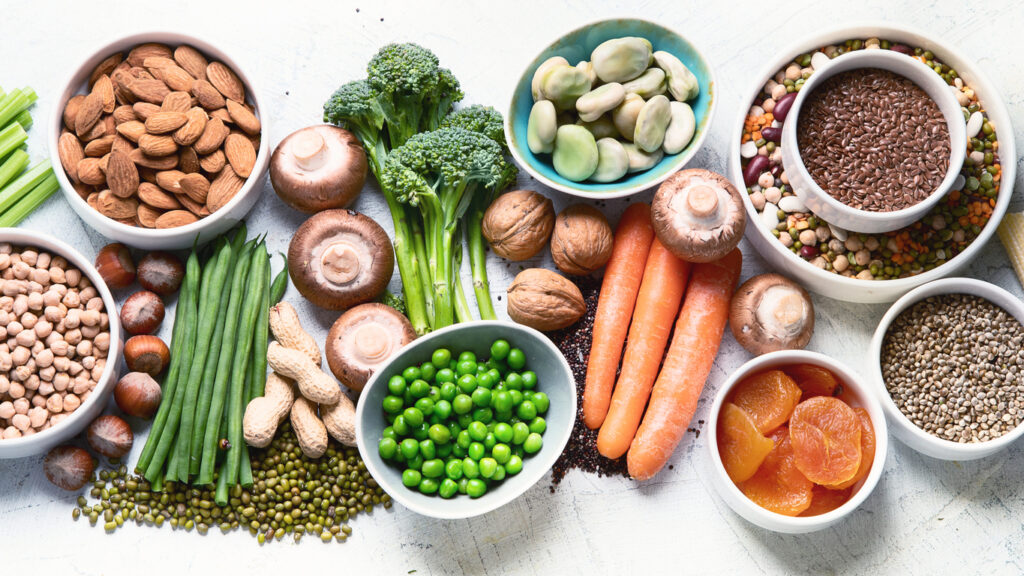For many people, January is a time to take on new resolutions, to make plans for significant changes. Meat Free Monday or choosing to eat plant-based for one day of the week often circulates as a popular decision. For good reason, beyond positive effects on your health, the results of a Meat Free Monday are far-reaching, including a significant and positive impact on the planet.
In unpacking meat-free decisions, it’s necessary to understand the implications traditional proteins have on the environment. If you commit to participating every Monday – the equivalent of skipping one serving of beef a week for a year – you would save the same emissions over the twelve months as driving almost 700 kilometres.
Since its beginning in 2003, the Meatless Monday movement has been embraced in over forty countries and now includes Meat Free Monday, Green Monday, and adaptations in twenty-two languages. The trend to forego meat once a week continues to increase as more people find innovative ways to make meatless dishes part of their everyday cuisine.
Better for the Environment.
So, what exactly makes up the carbon imprint for traditional proteins? There are several reasons for meat’s outsized ecological footprint. To start, cows emit methane from fermenting grassy food, and with a billion and a half cows across the planet (!), this output adds up to roughly 9 per cent of all global greenhouse gas emissions. Although other livestock don’t emit methane, they still produce plenty of manure, which generates nitrous oxide, another potent greenhouse gas.
Years of research on the ecological impact of food make one thing clear: plant proteins – even if processed into imitation burgers – have a smaller climate, water, and land impact than conventional meat
These farmed animals also need to eat fertilised crops which create even more emissions and use vast amounts of water. The average meat eater requires 16 Olympic swimming pools of water to produce the meat that they will eat in their life. A vegetarian diet alone could reduce water consumption by 58 per cent per person.
Feeding these crops to animals is far less efficient than providing them directly to humans. Specifically, for every twelve calories from corn and soy fed to a pig just one calorie of meat is produced in return. Why not use those resources for people directly?
How Do Plant-Based Products Compare?
What about meat alternatives? How do plant-based meats feature in the environmental impact? Even factoring in transportation and manufacturing, a local grass-fed beef burger will cause more emissions than a plant-based burger or manufactured block of tofu. With traditional meat, most of the impact is from the animal, feedcrop production, polluting manure, and deforestation.
Plant-based meats cut out the animal, allowing more efficient land use and resources. Years of research on the ecological impact of food make one thing clear: plant proteins – even if processed into imitation burgers – have a smaller climate, water, and land impact than conventional meats. Besides the environmental impact, reducing meat production would also minimise animal suffering and the risk of animal-borne disease and antibiotic resistance.
On a more macro scale, there is a need to increase the debate for overall food sustainability. For example, fish may have lower greenhouse gas emissions in their production, but overfishing can ultimately harm our fragile ocean ecosystems. Replacing beef with chicken might reduce climate emissions, but chickens are often raised in far worse conditions, have more viral outbreaks, and are given more than three times the antibiotics of cattle.
What to eat on Meat Free Monday?
Vegans and vegetarians will immediately recognise the ample choices of what to prepare when replacing traditional proteins, including beans, lentils, vegetables, and whole grains. These plant-based proteins are often less expensive and offer more health benefits than meat. So, where and how does one get started to make this choice an ongoing commitment rather than a forgotten resolution?
A plant-based diet emphasises fruits, vegetables, grains, beans, legumes, and nuts and is rich in fiber, vitamins, and nutrients. Those focusing on a plant-based diet tend to eat fewer calories, weigh less, and have a lower risk of heart disease than non-vegetarians. According to research compared to someone who eats 100g of processed red meat per day, someone who does not eat any processed red meat could extend their life by 46.15 minutes per Meat Free Monday.

Need additional support? Research shows people who eat red meat are at an increased risk of death from heart disease, stroke, or diabetes. Processed meats also increase the risk of death from these diseases. Furthermore, diets low in nuts, seeds, seafood, fruits, and vegetables also increase the risk of death.
When meal planning, try starting with your favourite meatless meals such as aubergine lasagna, hearty vegetable soups, or a healthy pasta salad. You can also try substituting the following protein-rich foods in your favourite recipes – beans and legumes are excellent in casseroles and salads; vegetarian refried beans provide an excellent substitute for meat in burritos and tacos, and tofu is the perfect addition to any stir-fried dishes.
What About Dining Out?
Dubai has several opportunities to enjoy plant-based substitutes when dining out (or ordering in). Impossible Burger, among others, was recently introduced to the market and can be swapped at many fast-casual locations. In speaking to friends or family, let them know your decision in advance, and research menus at restaurants that offer plenty of excellent vegetarian options.
Whatever the decision, there are many factors to encourage meat-free choices one or many days of the week. Although many resolutions are often discarded by the end of January, switching to even one additional plant-based meal per week will only help you and the environment.














